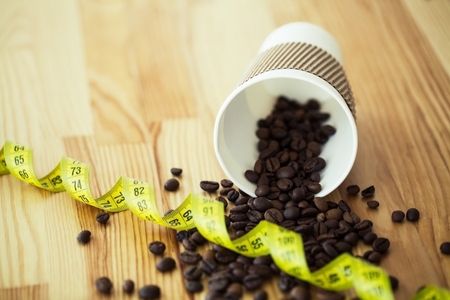Coffee is one of the beverages that is consumed worldwide the most. Caffeine, a stimulant found in coffee, stimulates both the body and the thinking. Although it’s a terrific technique to shed weight, some people like the rapid kick. Continue reading to find out why drinking coffee can help you lose weight is a well-liked and effective method of burning fat.
How Does Coffee Affect Weight Loss?
When coffee is consumed, the body reacts and becomes active in many ways. Among them are:
Coffee with Natural Stimulant
Coffee has a number of active components that function as the body’s natural stimulants. These consist of caffeine, theophylline, theobromine, and chlorogenic acid. Caffeine, the main stimulant in coffee, elevates mood and increases alertness by stimulating the central nervous system, which also provides an energy boost. It helps with weight loss because of its stimulant and thermogenic properties. Theobromine is an alkaloid that tastes bitter and is found in both coffee and chocolate. Its rapid energy surge promotes weight loss. It also helps control appetite and lessens food cravings.
Theophylline is found naturally in both chocolate and coffee. It also contains stimulant properties that widen blood vessels and boost blood flow throughout the body. It aids in weight loss by stimulating lipolysis and inhibiting adipogenesis, or the body’s production of fat. Chlorogenic acid is the main component of coffee beans. Robust antioxidant, it is essential for chemopreventive effects. It slows down the body’s absorption of carbohydrates.
Coffee Increases Metabolism Rate
The body’s metabolism and the rate at which fat burns and weight loss take place are strongly related. The body uses energy even when at rest. The rate at which these are burned is known as the resting metabolic rate (RMR). RMR causes an increase in the rate at which fat is burnt. This will stop the body from accumulating fat.
Coffee has stimulating and thermogenic properties that can increase RMR by up to 11%. Furthermore, consuming more coffee is linked to a speedier metabolism.
Coffee Has a High Antioxidant Content
Coffee contains natural stimulants as well as a large amount of antioxidants. The impacts of free radicals, which build up fat and induce weight gain, must be countered by antioxidants. Plants naturally contain micronutrients called polyphenols, which support cell regeneration and improve the performance of vital organs.
Coffee Is Low Calorie Drinking
Coffee contains 0 calories. If you don’t add any additional sugar or milk, a serving of black or green coffee will only set you back less than five calories. This raises your burning and keeps your calorie intake low.
However, bear in mind that consuming regular coffee with milk and sugar added converts it from a calorie-surplus beverage to a calorie-deficit one, increasing your chance of gaining weight rather than decreasing it.
Less Coffee Food Cravings
Hormones, exercise, and the foods we eat all play a significant role in controlling our appetite. When more calories are taken in than are expended, fat is retained. Thus, controlling hunger and food cravings is one of the most important parts of maintaining a healthy weight.
The caffeine in coffee lowers the hormone ghrelin, which stimulates appetite. It also increases the feeling of fullness, which suppresses appetite and decreases food cravings.
How Can Coffee Aid in My Weight Loss?
There is a widespread link between coffee use and weight gain, despite the fact that coffee boosts thermogenesis and helps with weight loss. It’s been suggested that your favorite coffee style is high in calories and can cause weight gain.
The quantity, timing, and composition of caffeine consumed each day all affect how many calories are in a cup of coffee. A high caffeine intake also causes blood sugar levels to rise, which is linked to a slow metabolism. Furthermore, its stimulating properties could disrupt sleep patterns. According to studies, getting too little sleep makes you more hungry and more likely to crave processed and sugary foods, which can lead to weight gain.
For this reason, if you wish to use coffee as a weight loss tool, it’s imperative that you prepare your cup properly. This is what you should do:
Observe Your Intake
Limit your daily caffeine use to 400 mg or fewer to get the healthiest benefits and a systematic, effective weight loss program. This is the same as four cups of coffee a day. If you prefer your coffee stronger, drink fewer cups.
Disregard Extras
Additive sugars and milk both provide extra calories. There will be an excess of calories as a result. Black coffee is therefore regarded as the best for weight loss. Simply brew your black coffee without any milk or sugar added. Cut back on the whipped cream topping and syrup flavorings.
Observe What You Add
The best option for reducing weight is black coffee, despite the fact that many individuals find the flavor too strong. If you also like regular coffee, make sure it’s prepared properly to prevent taking too many calories. Swap whole milk for skimmed milk and use low-calorie sweeteners like stevia and yacon syrup.
Select the Appropriate Time
Studies show that drinking less coffee during the day can result in higher calorie expenditure. However, drinking coffee right before bed and when you’re not feeling well could interfere with your body’s metabolism and make you gain weight instead of lose it. This implies that if you want to lose weight, the best time to drink coffee is between mid-morning until late afternoon. Coffee should be had 45–60 minutes prior to doing exercise for best results.


